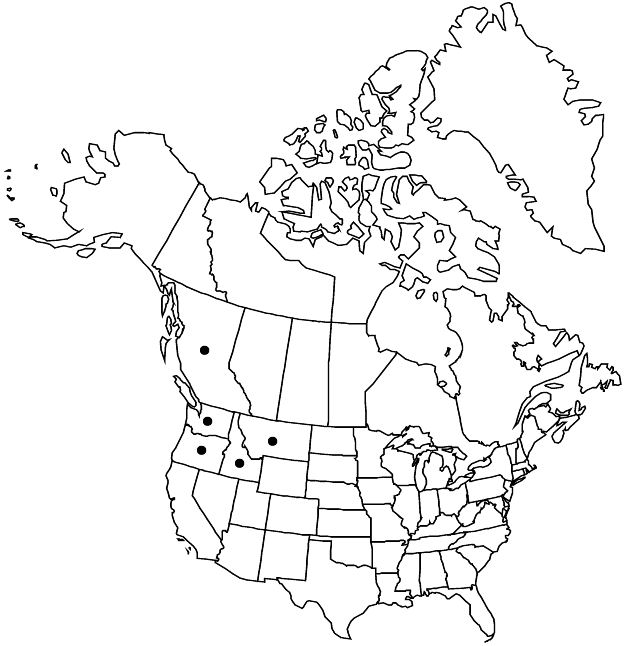Difference between revisions of "Crataegus chrysocarpa var. piperi"
Publ. Bot. Milwaukee Public Mus. 3: 163. 1965.
FNA>Volume Importer |
imported>Volume Importer |
||
| (6 intermediate revisions by 2 users not shown) | |||
| Line 12: | Line 12: | ||
|label=Endemic | |label=Endemic | ||
}} | }} | ||
| − | |basionyms={{Treatment/ID/ | + | |basionyms={{Treatment/ID/Basionym |
|name=Crataegus piperi | |name=Crataegus piperi | ||
|authority=Britton | |authority=Britton | ||
| + | |rank=species | ||
| + | |publication_title=Torreya | ||
| + | |publication_place=1: 55. 1901 | ||
}} | }} | ||
|synonyms={{Treatment/ID/Synonym | |synonyms={{Treatment/ID/Synonym | ||
|name=C. columbiana var. piperi | |name=C. columbiana var. piperi | ||
|authority=(Britton) Eggleston | |authority=(Britton) Eggleston | ||
| + | |rank=variety | ||
}} | }} | ||
|hierarchy=Rosaceae;Rosaceae subfam. Amygdaloideae;Rosaceae tribe Gillenieae;Crataegus;Crataegus sect. Coccineae;Crataegus (sect. Coccineae) ser. Rotundifoliae;Crataegus chrysocarpa;Crataegus chrysocarpa var. piperi | |hierarchy=Rosaceae;Rosaceae subfam. Amygdaloideae;Rosaceae tribe Gillenieae;Crataegus;Crataegus sect. Coccineae;Crataegus (sect. Coccineae) ser. Rotundifoliae;Crataegus chrysocarpa;Crataegus chrysocarpa var. piperi | ||
| Line 35: | Line 39: | ||
|distribution=B.C.;Idaho;Mont.;Oreg.;Wash. | |distribution=B.C.;Idaho;Mont.;Oreg.;Wash. | ||
|discussion=<p>Variety piperi occurs in the intermontane region from the southern Coastal Range of British Columbia and the Cascades of Washington, to the Rocky Mountains of British Columbia and Montana, where it is widespread and locally common in suitable valley habitats.</p><!-- | |discussion=<p>Variety piperi occurs in the intermontane region from the southern Coastal Range of British Columbia and the Cascades of Washington, to the Rocky Mountains of British Columbia and Montana, where it is widespread and locally common in suitable valley habitats.</p><!-- | ||
| − | --><p>Variety piperi has been treated frequently in the Pacific Northwest literature as Crataegus columbiana Howell; when that species was divided by floristicians into var. columbiana (glabrous) and var. piperi (hairy), the former could not be found. Crataegus columbiana was based on two different species and its recent typification, which makes it a synonym of C. douglasii, reflects this anomaly.</p> | + | --><p>Variety piperi has been treated frequently in the Pacific Northwest literature as <i>Crataegus</i> columbiana Howell; when that species was divided by floristicians into <i></i>var.<i> columbiana</i> (glabrous) and <i></i>var.<i> piperi</i> (hairy), the former could not be found. <i>Crataegus</i> columbiana was based on two different species and its recent typification, which makes it a synonym of <i>C. douglasii</i>, reflects this anomaly.</p> |
|tables= | |tables= | ||
|references= | |references= | ||
| Line 44: | Line 48: | ||
-->{{#Taxon: | -->{{#Taxon: | ||
name=Crataegus chrysocarpa var. piperi | name=Crataegus chrysocarpa var. piperi | ||
| − | |||
|authority=(Britton) Kruschke | |authority=(Britton) Kruschke | ||
|rank=variety | |rank=variety | ||
| Line 59: | Line 62: | ||
|publication year=1965 | |publication year=1965 | ||
|special status=Endemic | |special status=Endemic | ||
| − | |source xml=https:// | + | |source xml=https://bitbucket.org/aafc-mbb/fna-data-curation/src/2e0870ddd59836b60bcf96646a41e87ea5a5943a/coarse_grained_fna_xml/V9/V9_1024.xml |
|subfamily=Rosaceae subfam. Amygdaloideae | |subfamily=Rosaceae subfam. Amygdaloideae | ||
|tribe=Rosaceae tribe Gillenieae | |tribe=Rosaceae tribe Gillenieae | ||
Latest revision as of 22:53, 5 November 2020
Shrubs, 20–35 dm. Leaves: blade rhombic to narrowly rhombic or rhombic-elliptic, base ± cuneate, sinuses: max LII 15–20%, lobe apex acute, veins 5 or 6 per side, abaxial surface persistently rough-pubescent, adaxial appressed-pubescent, glabrescent. Inflorescences: branches ± villous. Flowers: 15–20 mm diam.; hypanthium villous; stamens 10, anthers cream to ivory, sometimes pink. Pomes salmon-orange young, bright red, suborbicular, 10 mm diam., pubescent. 2n = 68.
Phenology: Flowering May–Jun; fruiting Sep–Oct.
Habitat: Streamsides and washes, sagebrush, pine forests
Elevation: 300–800 m
Distribution

B.C., Idaho, Mont., Oreg., Wash.
Discussion
Variety piperi occurs in the intermontane region from the southern Coastal Range of British Columbia and the Cascades of Washington, to the Rocky Mountains of British Columbia and Montana, where it is widespread and locally common in suitable valley habitats.
Variety piperi has been treated frequently in the Pacific Northwest literature as Crataegus columbiana Howell; when that species was divided by floristicians into var. columbiana (glabrous) and var. piperi (hairy), the former could not be found. Crataegus columbiana was based on two different species and its recent typification, which makes it a synonym of C. douglasii, reflects this anomaly.
Selected References
None.